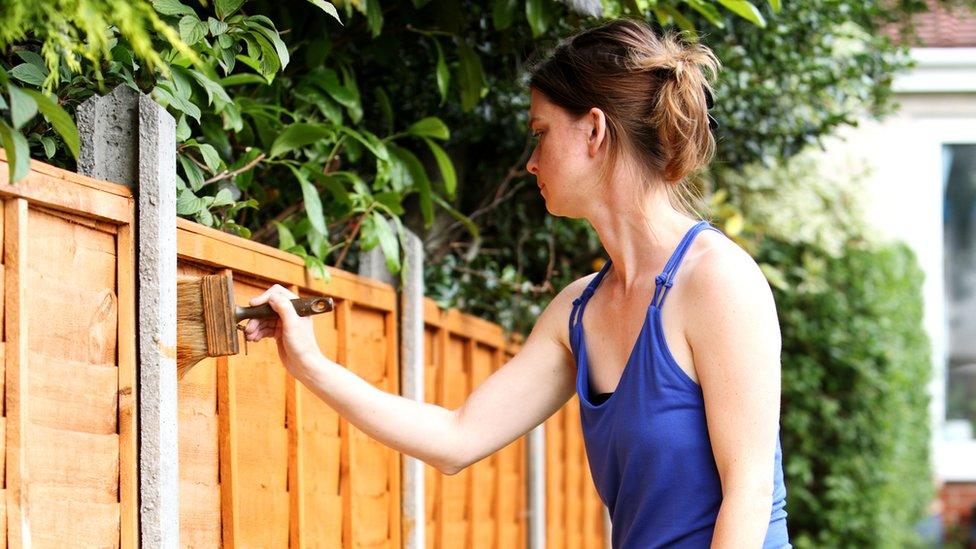Coronavirus: 14,000 lockdown-breach fines imposed
- Published
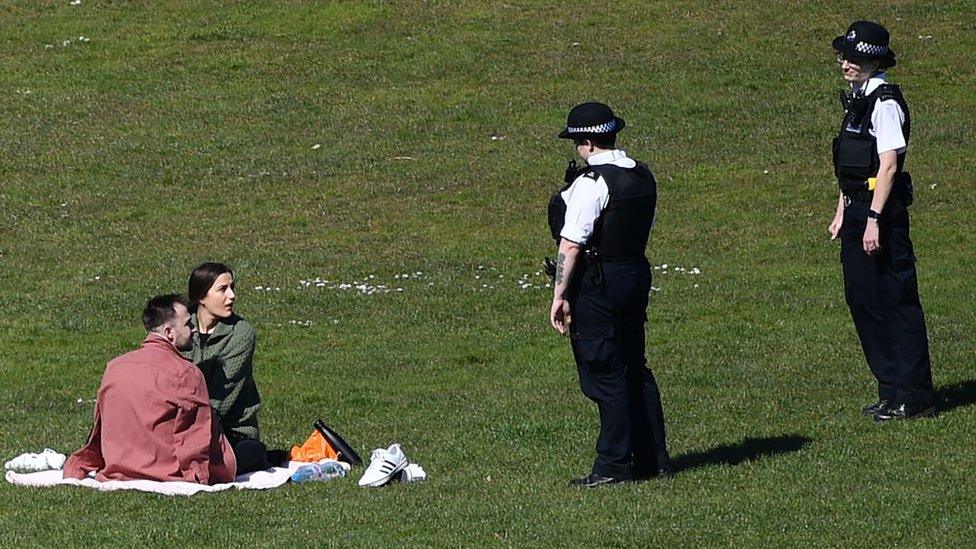
Police in England and Wales have issued more than 14,000 fines for alleged breaches of lockdown laws.
The figures, from 27 March to 11 May, show the most fixed penalty notices - 906 - were handed out in London, by the Metropolitan Police.
The data covers the period before the penalty rose from £60 to £100 in England after the rules were eased.
It has also been disclosed that 56 people have been wrongly charged with offences relating to the pandemic.
The National Police Chiefs' Council says 13,445 fines were issued by forces in England and 799 in Wales for breaches of social distancing rules brought in to fight the coronavirus outbreak.
These include restrictions on people's right to move around or be part of a gathering.
After the Met Police, the Thames Valley force imposed the next highest number of notices (866), followed by North Yorkshire (843) and Devon and Cornwall (799).
By contrast, Warwickshire Police issued only 31, the Staffordshire force just 52 and Gwent 71.
There were 862 repeat offenders, including one person who has been fined nine times.
The times when the most fines were imposed were during sunny weather at Easter, with almost 600 handed out on Saturday 11 April and another 500 the following day.
But the National Police Chiefs' Council says its figures show officers are taking a "proportionate" approach - with only one in 5,000 people across England and Wales fined.
It comes as the Department of Health said it recorded another 384 deaths of people in the UK, bringing the total number to have died following a positive coronavirus test to 33,998, as of 17:00 BST on 14 May.

The coronavirus laws were drawn up and implemented at such pace that problems were inevitable.
When the measures came into force in March, police didn't have any bespoke tickets for lockdown fines because they had not yet been printed, so they had to improvise by scribbling details on other penalty notices.
Then it emerged that children had been fined - even though the regulations don't allow it; and now we've learned that all 44 of those charged under the Coronavirus Act should not have been prosecuted at all under the emergency legislation.
It seems, from what the CPS and police have said, that the errors have caused no great injustice to those involved.
Nevertheless, the number of mistakes suggests there's been a serious failure to explain the purpose and reach of the new laws to those who have to apply it.

There are separate rules for managing the threat of coronavirus in England, Wales, Scotland and Northern Ireland.
The first fine someone could receive if police believed they were flouting restrictions in England rose from £60 to £100 on Wednesday.
This will be lowered to £50 if paid within 14 days but fines will double for each repeat offence, up to a maximum of £3,200.
The fine imposed in Wales is £60, reduced to £30 if paid within two weeks. It can be doubled for each repeat offence up to a £960 maximum.
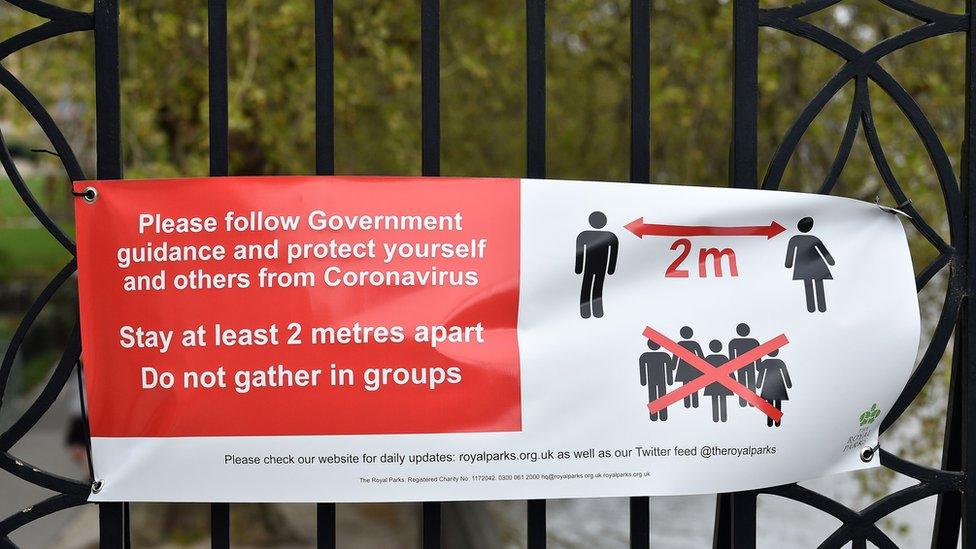
The rules in England were loosened this week,, external and now allow a person to spend unlimited time outdoors for recreation or exercise as long as they do so alone, with members of their own household. - or with one person from another household.
Social distancing of two metres still has to be observed, although police do not enforce this guidance, external because it has not been written into the law.

RISK AT WORK: How exposed is your job?
SCHOOLS: When will children be returning?
EXERCISE: What are the guidelines on getting out?
THE R NUMBER: What it means and why it matters
LOOK-UP TOOL: How many cases in your area?

Separate figures show that 231 people have been brought to court for offences relating to coronavirus.
But a review by the Crown Prosecution Service found that 56 suspects had been charged incorrectly.
All 44 charges brought under the Coronavirus Act, allowing police to detain a "suspected infectious person" for assessment, were incorrect.
And 12 charges under the Health Protection Regulations 2020, which give powers to break up gatherings and restrict movement, were brought wrongly.
The CPS said safeguards had now been put in place.
It added that many of the mistakes had come about because of Welsh regulations being used in England, or vice versa.
- Published30 April 2020
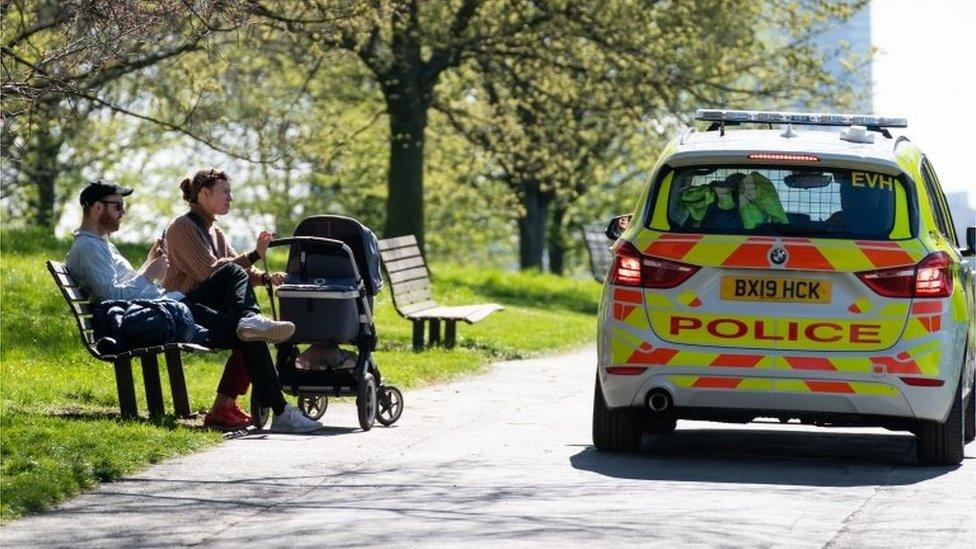
- Published14 May 2020
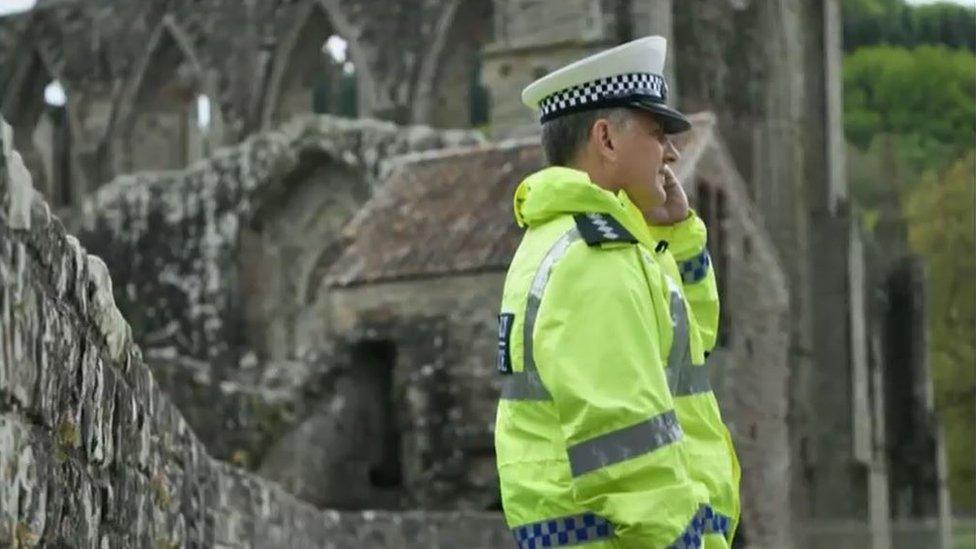
- Published11 May 2020
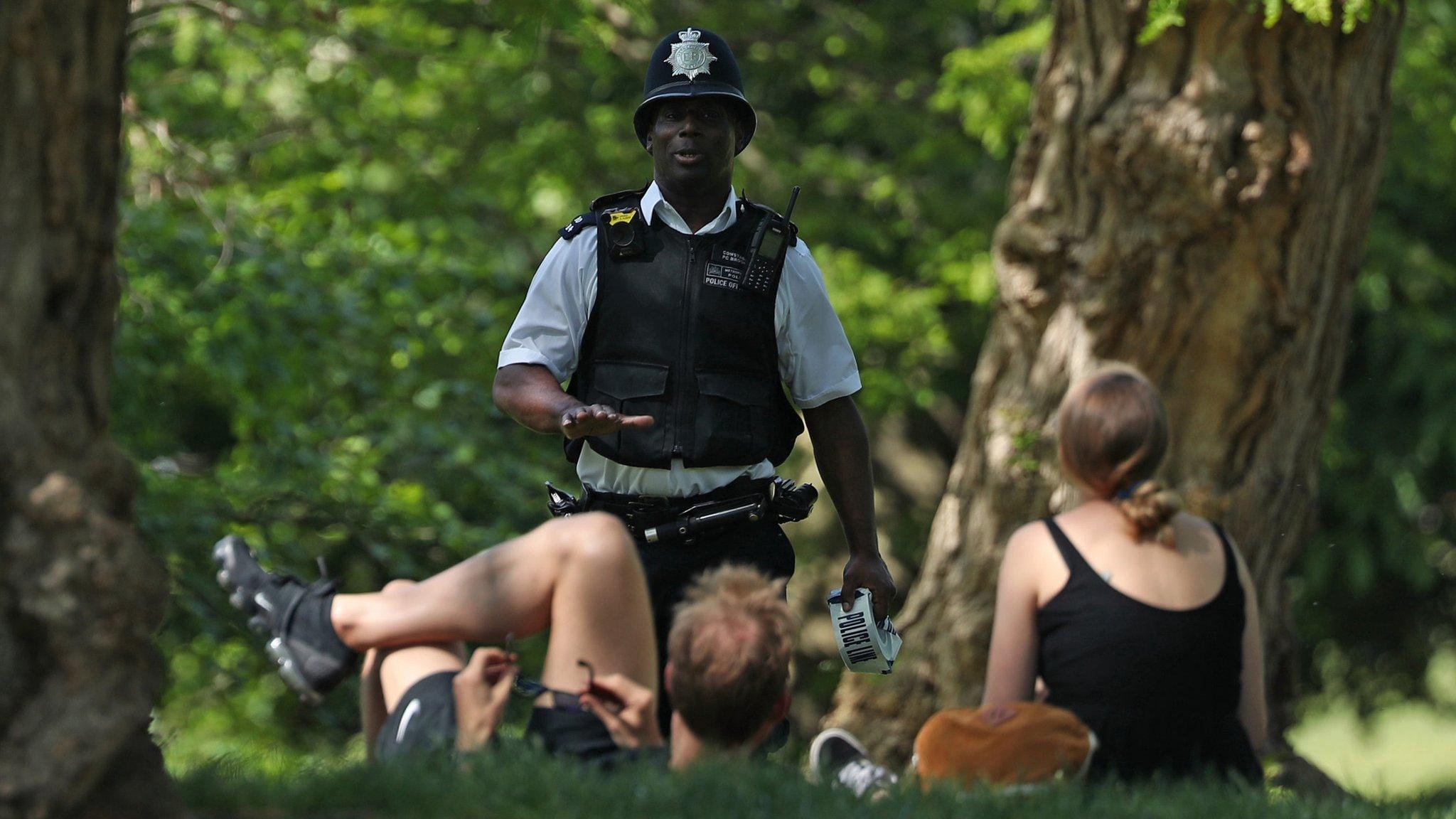
- Published12 January 2021

- Published16 April 2020
